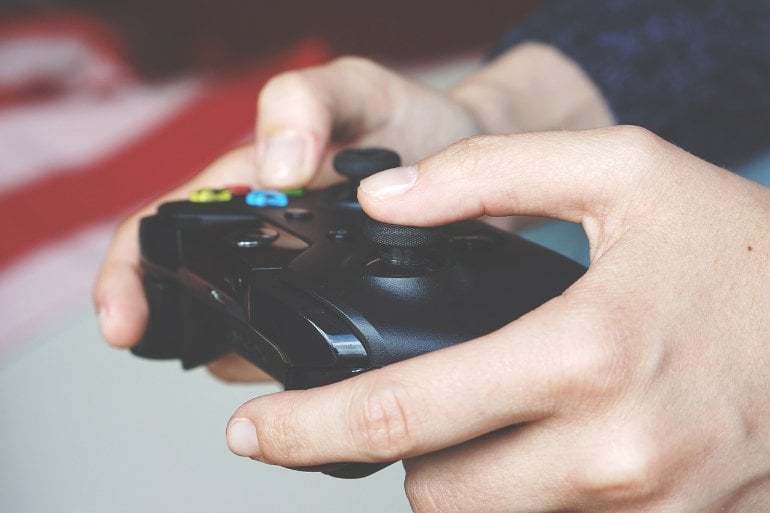Summary: Achievement motivation is one of the strongest predictors of video game addiction, a new study reports.
Source: University at Buffalo
As online video games increase in popularity—particularly with the COVID-19 pandemic forcing people to stay home—some players are becoming addicted as they seek feelings of achievement and escape, according to new research from the University at Buffalo School of Management.
Recently published in Decision Support Systems, the study found that gamers have a stronger feeling of ownership of the virtual environment compared to other technology users, such as website surfers. This interest in occupying the virtual world can become problematic—even addicting—when coupled with excessive playing time.
“Gaming can be traced throughout human history as a way to help people relax and retreat from daily routines,” says Lawrence Sanders, PhD, professor of management science and systems in the UB School of Management. “But the booming popularity of online games has led to an increase in addiction, which can result in players ignoring family and job responsibilities. Severe cases can lead players to crime, health problems or even death.”
The researchers surveyed more than 400 undergraduate business students to assess the impact of achievement motivation, social motivation and escapism on the psychological ownership of virtual gaming worlds—and how that relates to online game addiction.
Their results show that while motivations for achievement and escapism predict a gamer’s psychological ownership of the virtual world, social motivation does not.
“People looking to socialize take advantage of other options like in-person friendships or social media platforms—they don’t rely on the virtual world and gaming to connect with others,” says Sanders.
The researchers recommend several strategies to address online game addiction. They say families, communities and universities should encourage outdoor activities, such as sports competitions and offline games, to address the need for achievement and escapism. In addition, parents, teachers and employers should pay attention to individuals who have a high level of primary control—the desire to change their environment and other people to achieve a sense of control—since they can be susceptible to addiction.

Meanwhile, for gamers themselves, the researchers suggest choosing a relatively easy or hard mode rather than an intermediate difficulty when playing. That’s because achievement motivation is one of the greatest predictors of online gaming addiction, and since easy modes are not competitive and hard modes are tough to master, they reduce the likelihood of players getting hooked.
Sanders collaborated on the study with lead author Xunyi Wang, PhD, assistant professor of information systems in the Hankamer School of Business at Baylor University, and Mohamed Abdelhamid, PhD, assistant professor of information systems at California State University Long Beach. Wang and Abdelhamid are both UB School of Management doctoral alumni.
About this video game addiction research news
Source: University at Buffalo
Contact: Press Office – University at Buffalo
Image: The image is in the public domain
Original Research: Closed access.
“Exploring the effects of psychological ownership, gaming motivations, and primary/secondary control on online game addiction” by Lawrence Sanders et al. Decision Support Systems
Abstract
Exploring the effects of psychological ownership, gaming motivations, and primary/secondary control on online game addiction
Online gaming has grown to be a very popular electronic entertainment for people throughout the world. However, the burgeoning popularity of online games in some cases leads to addiction, a phenomenon that has received considerable attention.
The purpose of this study is to examine the effects of psychological ownership, gaming motivation, and primary–secondary control on online game addiction (OGA). Based on 436 valid responses collected from online questionnaires, the partial least squares structural equation modeling approach was employed to test the research model.
Findings show that the motivations of achievement and escapism are positively associated with psychological ownership toward a virtual gaming environment. Of particular interest is the inverted-U relationship between psychological ownership and OGA, suggesting that too little or too much psychological ownership is associated with less OGA.
Finally, individuals with high levels of primary (secondary) control are more (less) inclined to be addicted to online games.
This study provides practical implications and strategies to address the alarming increase in OGA.
First, families, communities, and universities should encourage outdoor activities, such as sports competitions, and offline cosplay games to address the need for achievement and escapism. Second, individuals who play online games for relaxation should choose a relatively easy or hard mode to avoid game addiction. Finally, parents, teachers, and employers are encouraged to pay attention to individuals who have a high level of primary control since they can be susceptible to OGA.
This study provides several theoretical contributions. First, the study enriches OGA and the gaming motivation literature by exploring the roles of gaming motivation, psychological ownership, and personal control strategies as they can be a factor in OGA.
In addition, this study is the first to investigate the dark side of psychological ownership in terms of negative outcomes for OGA. This study also advances the personal control strategy literature by understanding the roles of primary and secondary control on OGA.







